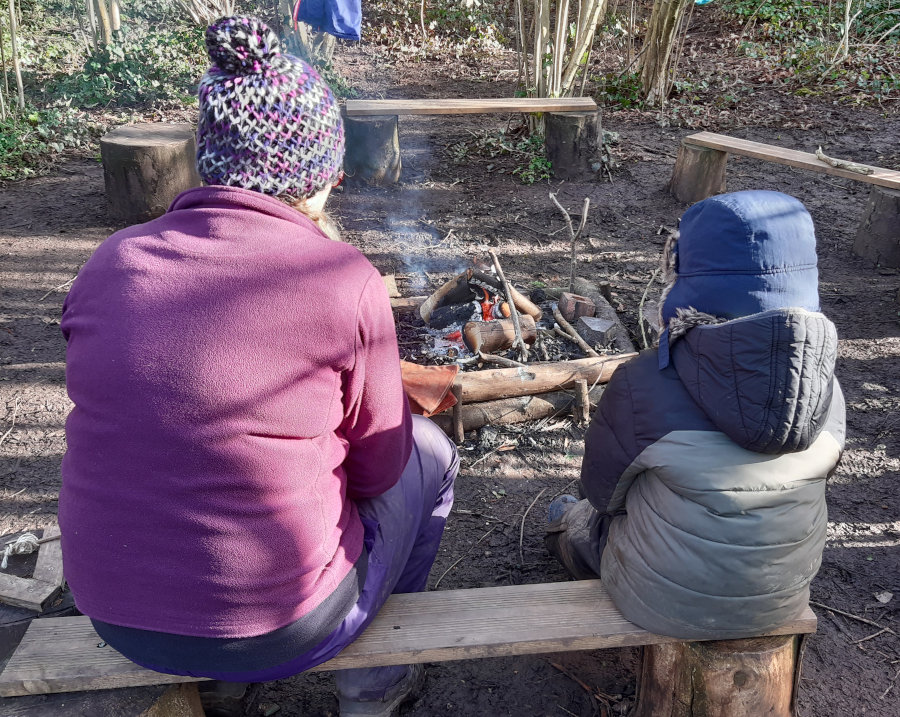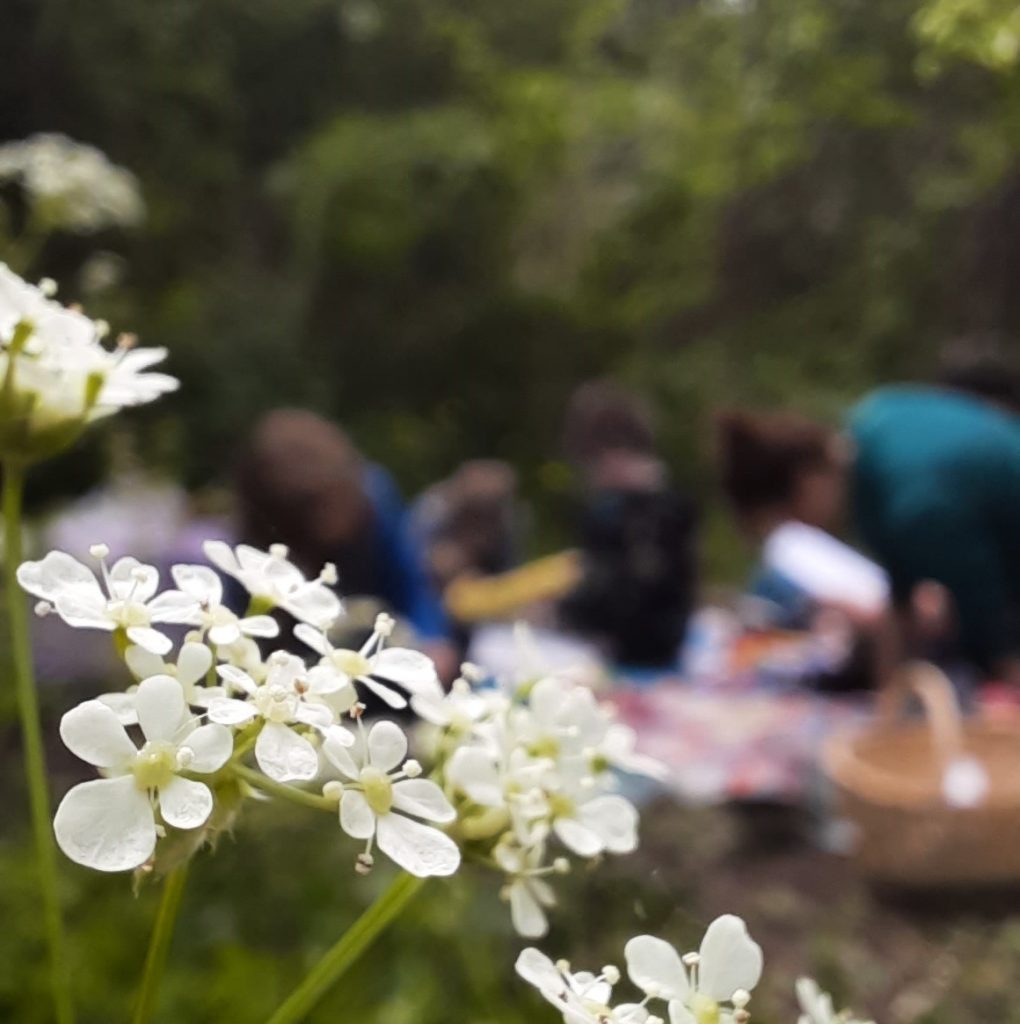
Offering a curriculum for connection, resilience and relationship.
Sometimes mainstream school may feel too much, too busy, too loud or too difficult for children. Bramblewood offers children and young people weekly sessions in an alternative learning space that:
- follows the forest school guiding principles
- encorporates Playfulness, Acceptance, Curiosity and Empathy (PACE)
- where practice is informed by current understandings of trauma, interpersonal neurobiology, neurodiversity, attachement theory and emotional regulation
How do children benefit?
Opportunities and outcomes available to children attending Bramblewood alternative provision include:
- experience of secure attachments with empathetic adults whose focus is the children’s social, emotional, mental and spiritual wellbeing.
- opportunity for emotional co-regulation where needed, and space to practise more autonomous emotional regulation in nature, without judgement from peers and adults.
- a feeling of real welcome and belonging in a community, just as they are, rather than standing out from the crowd, or masking their true selves to fit in with it.
- multiple opportunities for intrinsic experiences of success in the things that really matter to them.
- space and encouragement to learn about their own boundaries, and experience expressing them constructively.
- experience of taking a real and active role in negotiating needs and boundaries and acheiving consent. Responding to and receiving understanding and support to cope with grief when things don’t go their way.
- recogntion that they can, not only cope, but also thrive in a social setting.
- a broad age range of children and young people with and from whom they can learn.
- an unequivocal message from trusted adults and peers that they matter, they are important and that they make sense.
What we do.
We approach each day at Bramblewood with the plan created by the community during the last session, coupled with the question: “What will the learning and attachment needs of our children be today?” (We recognise that such needs are not always fixed and will vary depending on a person’s physical, emotional and social circumstances that day.)
We follow a consent-based structure, where each session starts and ends with a community meeting. This means everyone knows that their voice and needs are important to the community as a whole. The meeting enables us all to learn from each child about their needs and interests that day, to forge agreements which will support everyone’s needs, and together to create plans for greatness and discovery. The meetings are also the space in which the whole community can contribute towards risk managment and conflict resolution.

With our plan for the day in place, Bramblewood coupled with our learner-led approach, affords everyone the gift of space and time, where children can follow their interests and curiosities, and facilitators can offer further enrichment activities or, where welcomed, follow or join with the children to scaffold their learning and help meet their needs.
With invitations to join in activities and co-create play and discovery, and safe calming spaces into which to withdraw if needed, children are supported to experientially learn about their own needs and boundaries, those of their peers and how these can interact in relationship.
Children regularly find that the natural surroundings, gentle sensory stimulaton and spaciousness of Bramblewood offers them opportunities, perhaps unavailable to them in other settings, to self and co-regulate their nervous systems.
Activities that our Learning Community have co-created, include:
- extended multi-role role plays which afforded participants exploration and, for some, resolution of key issues affecting them
- responding to an immediate and practical community need e.g. creating and fixing in place a new loo roll holder, removing dead branches in the canopy, building a shelter when the rain came unexpectedly, building and lighting fire for warmth, sawing and splitting fire wood
- creating and cooking new recipes on the fire
- creating a cosy library and using it
- planning, risk assessing and completing trips off site
- cloth dying with natural dyes
- creating a shower to keep everyone cool, and managing its use by negotiating agreements
- music, singing and story
- creating a puppet theatre, puppets and the show
- the planting and nurture of new trees and plants
- creating habitats and feeding stations for wildlife
Key Information
- Children access these sessions following a referral from a local school, education authority or similar.
- We also welcome referrals from Social Prescribing link workers and wellbeing teams from the Primary Care Network.
- Ratios of adult support are high, often 1:1.
- Sessions run 10am-3pm; we have two separate communities, one on Tuesdays and another on Wednesdays, both of which operate during term-time.
- In some cases we are able to offer short-term, short-notice placements for children, although this is subject to availability.
- Sessions are booked in termly blocks, with 6 weeks of active sessions required for the end of a placement.
If an occasional alternative provision has been suggested or is being considered to help your child cope, do get in touch to discuss potential options, we’d love to help.

This service is continually evolving as needs and situations become apparent to us. We are happy to talk about creative solutions with school teams, Socila Prescribing teams, service providers and parents to see if we can craft something helpful.